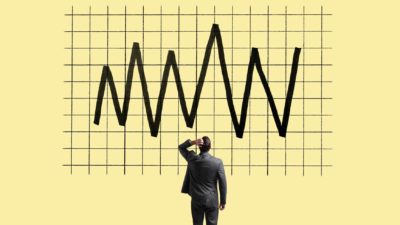If you've been paying attention — and even if you haven't — you might have noticed that the unofficial federal election campaign is underway.
Whether you've noticed the increased presence of hard hats and high vis on the news, the faster pace of policy announcements, or the jump in sloganeering, it seems pretty clear the current and would-be politicians are at the very least warming their engines for the race to the electoral finish line.
Now, don't worry — I'm not going to push a particular side, or even a particular policy.
For what it's worth, I'd like them all to look even a few years past the next electoral cycle, and propose policies that give us the best long-term future as a country and as a society.
But, back in the real world, let's talk about the economy.
Here's some reality:
First: The government of the day doesn't have anywhere near the impact on the economy that it likes to think when things are going well, or that the opposition of the day likes to think when things are going badly.
It just doesn't.
The economy has its own momentum. International trade, interest rates and commodity prices do their own thing. Businesses and employees make their own choices.
Which isn't to say that the incumbent or prospective government can't change policy settings to influence the future of the economy… but that's a whole different thing, and the results won't be felt for years.
Second: No government should be trying to arbitrarily 'keep interest rates low' and no opposition should be against interest rates rising, if it's the right thing for the economy.
Why? Because the RBA is independent. And because interest rates are supposed to move higher and lower to cool an overheating economy or support a sputtering economy, respectively.
That is literally their role.
Pretending otherwise is, if not exactly lying, happily misinforming the public and/or taking cynical advantage of their misunderstanding.
If you want an economy without deep, long recessions, the cost of that is increasing interest rates. Keeping rates unduly low just ends up overheating the economy; and that just ends in abject misery.
Third: We all want to be paid more. Ergo, we want wages to be higher.
But you know what the RBA is looking for, before increasing interest rates? Yep, higher wages.
I saw some numbers yesterday that suggest the RBA's preferred 'neutral' interest rate of 2.5% – 3.5% could add up to $1,000 to the average monthly home loan repayment.
So… if you're a mortgage-holder, or know someone who is, be careful what you wish for.
Again, though, we should be earning more, if the economy is healthy, and paying those sorts of interest rates, when the economy is back to 'normal'.
The pollies won't remind you that an official cash rate of 0.1% is both unprecedented and what the RBA still calls 'emergency' levels.
Of course, if we want real wage increases, driven by increased prosperity, we need to be more productive and/or more internationally competitive.
But productivity and competitiveness are hard to capture in 15-second talking points and three word slogans.
They don't appeal to our basest natures or to our prejudices and preconceptions.
So we'll hear more about the credit and blame, and who's going to be better/worse on those three topics.
Probably without much reference to economic reality.
Over. And over. And over.
Unfortunately, a lot of people will either believe it because they don't know better, or will simply parrot the lines of 'their team'.
Maybe I'll be wrong.
Maybe the candidates will release — and talk about — long policy statements that plan for the society they want us to be in 10 and 20 years, the policies for which need to be set in place, today.
Or not.
But at least you'll know the spin when you see it.
Fool on!









